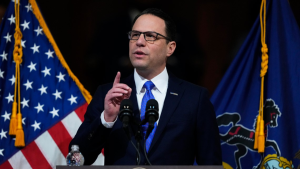Valentine’s Day is all about love, but in 1945, Georgia lawmakers had a different idea—they wanted to tax single men!
This unusual proposal, known as the 1945 Bachelor Tax, suggested that men who remained unmarried should pay extra money every year.
Newspapers at the time had a field day with the idea, reporting on the reactions from the public.
A Fine for Staying Single
In early 1945, a group of Georgia legislators introduced a bill to tax unmarried men. The Atlanta Constitution reported on March 6, 1945, that bachelors in Georgia would have to pay a $100 tax every year.
On top of that, older bachelors would have to pay an additional $10 for each year they remained single past the age of 30.
For example, under this law, a 25-year-old single man would pay $100, while a 40-year-old bachelor would owe $200.
The money collected from the tax was supposed to go to the “spinsters of the state,” though newspapers didn’t explain exactly how that would work.
A Way to Avoid the Tax
There was, however, one way for bachelors to escape paying. If they could prove that they had proposed to a woman and been rejected, they would not have to pay the tax.
Men could submit an official document once a year confirming that they had asked someone to marry them and she had said no.
Was This a Real Bill?
Yes, this was an actual bill introduced in the Georgia House of Representatives.
The bill was co-sponsored by six representatives: A.W. Alexander (Carroll County), W. Spencer Connerat (Chatham County), Ralph M. Holleman (Muscogee County), Helen Douglas Mankin (Fulton County), J.C. Smith (Oglethorpe County), and Max R. Looper (Dawson County). Interestingly, the marital status of these lawmakers was not recorded in news reports.
However, the bill was introduced too late in the legislative session, and it never moved forward. According to the Griffin Daily News on March 3, 1945, the proposal died without debate.
Read More:
- Governor Shapiro Files Lawsuit Against Trump Administration Over Withheld $2.1 Billion in Federal Funds!
- Local Nonprofits Rally to Provide Rent Support for Triangle Refugees!
The Reaction and Legacy
While the bill never became law, it created plenty of laughter and discussion at the time. Newspapers published columns joking about how Georgia’s bachelors were reacting.
In the Atlanta Journal, a writer known as “Sally Forth Says” collected serious and humorous responses from well-known unmarried men in the state.
Although the Bachelor Tax never became official, the idea of taxing based on marital status has never completely disappeared. Today, U.S. tax laws include different rules for married and single people.
Even in recent years, some government proposals have linked policies to marriage and birth rates.
So, as Valentine’s Day comes around again, it’s a reminder that love—and sometimes taxes—are always part of life!
Disclaimer- Our team has thoroughly fact-checked this article to ensure its accuracy and maintain its credibility. We are committed to providing honest and reliable content for our readers.






















+ There are no comments
Add yours